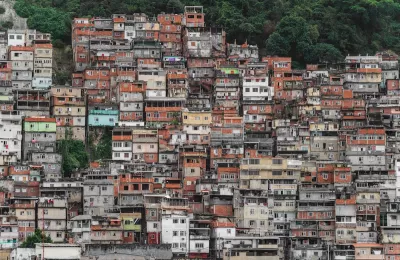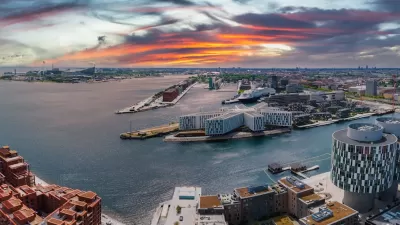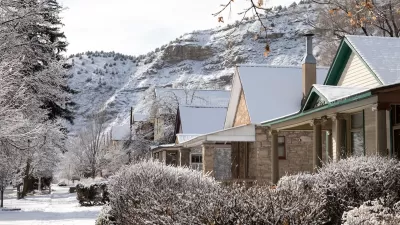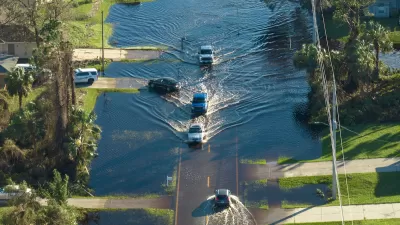Ensuring that housing, including in informal settlements, is safe and healthy for its residents is a key tool in the fight to build more sustainable and equitable communities in the face of climate migration.

As climate migration displaces more and more people around the world, building more resilient housing will become key to managing urban growth and shifts in population centers, writes Jonathan Reckford in Time. “According to the United Nations Environment Programme, the built environment accounts for 21% of global greenhouse gas emissions, with residential buildings responsible for 17% of the total emissions. As the planet warms and climate disasters intensify, housing’s role becomes even more critical—not only in reducing emissions but also providing stability and safety to those most affected.”
Housing-centric approaches that adapt communities and households to climate impacts, including comprehensive slum upgrading, are essential for climate actions and advancing sustainable development goals. These strategies not only address climate resilience but also provide pathways for improved health, education, and economic outcomes.
According to Habitat by Humanity research, “GDP and income per capita would increase by as much as 10.5% in some countries if housing in informal settlements were upgraded at a massive scale, and as many as 41.6 million additional children could be enrolled in school.” For Reckford, addressing the needs of people living in informal settlements — often without access to safe infrastructure or clean water — is a crucial part of building more sustainable and equitable communities.
FULL STORY: Why Housing Is a Frontline Defense Against Climate Change

Maui's Vacation Rental Debate Turns Ugly
Verbal attacks, misinformation campaigns and fistfights plague a high-stakes debate to convert thousands of vacation rentals into long-term housing.

Planetizen Federal Action Tracker
A weekly monitor of how Trump’s orders and actions are impacting planners and planning in America.

San Francisco Suspends Traffic Calming Amidst Record Deaths
Citing “a challenging fiscal landscape,” the city will cease the program on the heels of 42 traffic deaths, including 24 pedestrians.

Defunct Pittsburgh Power Plant to Become Residential Tower
A decommissioned steam heat plant will be redeveloped into almost 100 affordable housing units.

Trump Prompts Restructuring of Transportation Research Board in “Unprecedented Overreach”
The TRB has eliminated more than half of its committees including those focused on climate, equity, and cities.

Amtrak Rolls Out New Orleans to Alabama “Mardi Gras” Train
The new service will operate morning and evening departures between Mobile and New Orleans.
Urban Design for Planners 1: Software Tools
This six-course series explores essential urban design concepts using open source software and equips planners with the tools they need to participate fully in the urban design process.
Planning for Universal Design
Learn the tools for implementing Universal Design in planning regulations.
Heyer Gruel & Associates PA
JM Goldson LLC
Custer County Colorado
City of Camden Redevelopment Agency
City of Astoria
Transportation Research & Education Center (TREC) at Portland State University
Jefferson Parish Government
Camden Redevelopment Agency
City of Claremont





























